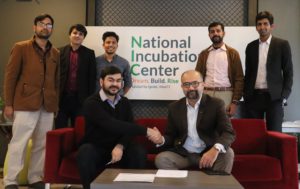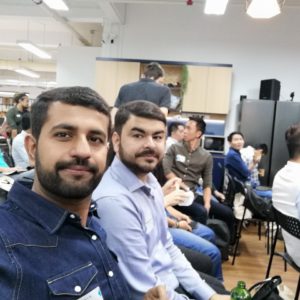
Infections: A global killer
Infections such as pneumonia, viral diseases and meningitis are leading causes of death in hospitals and the 2nd leading cause of death in the world. This is a great concern for medical professionals and anyone with prior health issues, especially as people who have pre-existing comorbidities such as diabetes, hypertension and cancer are highly susceptible to infections.
Rashid and his team at Xpertflow had been working on healthcare automation projects, when they discovered, through numerous interviews with doctors, gaps in the healthcare system. Xpertflow then sought ways to develop tools and leverage on data to build solutions for the healthcare industry, with the vision to “eradicate all preventable diseases using deep tech”.
Leveraging on deep tech to provide healthcare solutions
Nostro by Xpertflow is a diagnostic tool that provides doctors with prognosis of potentially life-threatening infections up to 6 hours before onset. The team built its predictive AI model from publicly available datasets and continues to collect data from local and foreign patients to improve its accuracy.


The team also developed NWear, a state-of-the-art wearable biosensor, to collect vital stats from patients. This data is then transmitted to DeepNostix, a patient management software that works as an EHR (electronic health record) for intensive care units. Xpertflow’s proprietary technology sets them apart from other competitors by providing an all-in-one platform to help doctors in providing diagnosis and care for patients.
Putting healthcare at the forefront post-pandemic
With the sudden turn of events arising from the COVID-19 pandemic, the spotlight is on healthtech and medtech companies who can contribute to the growing demand and rising challenges faced by the medical industry. Xpertflow has since been accepted into accelerators across the globe; Expara VirTech Global Accelerator in Singapore, UNSW Founders Health 10x in Australia and Startup Istanbul Accelerator in Turkey. As hospitals worldwide struggle with a shortage of beds and patients are sent home prior to full recovery, the team has also launched a new product to help trace and remotely monitor COVID-19 patients and their health status at home.
Team
Rashid Hameed, Sayyaf Haider, Shan ul Haq





